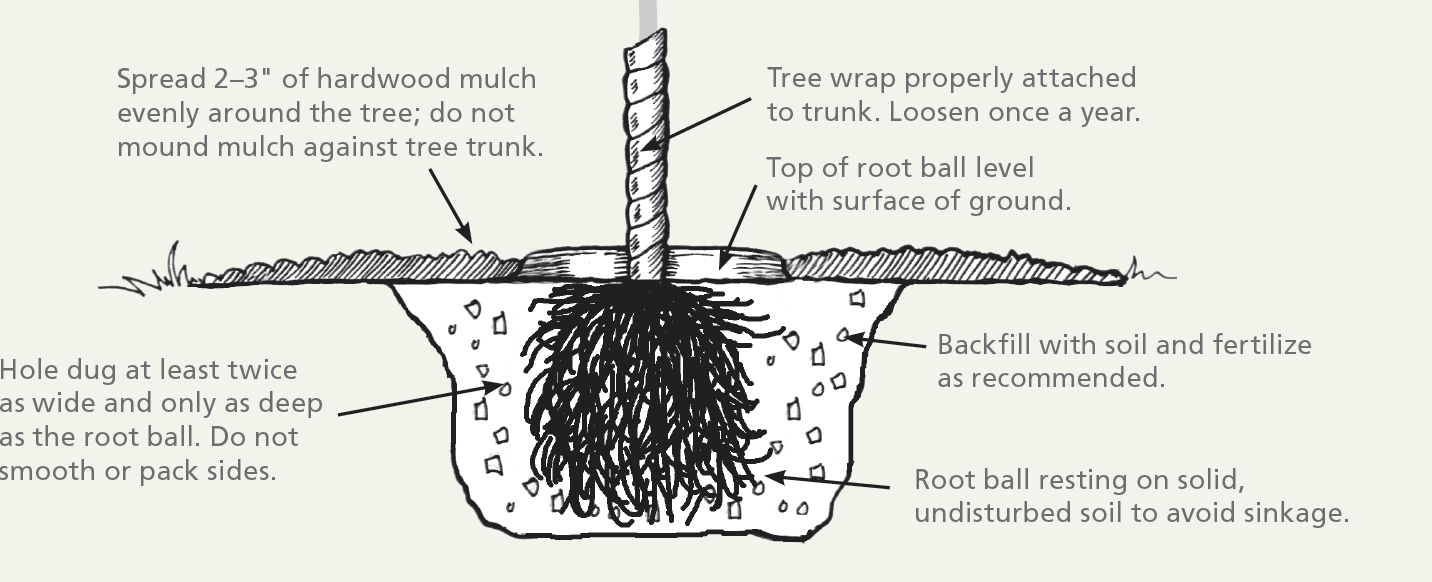Forrest Keeling Nursery has revolutionized the production of native plants with its patented **Root Production Method® (RPM)**. This innovative, all-natural approach combines advanced horticultural techniques with cutting-edge soil science to produce healthier, more vigorous plants better suited for conservation, restoration, and landscaping projects. RPM-produced plants are renowned for their superior performance and unsurpassed survivability, making them the preferred choice for ecologists, conservationists, and restoration practitioners worldwide.
What is RPM?
The Root Production Method® (RPM) is a 12-step nursery culture process designed to grow plants with dense, fibrous root systems. Each step of this patented process helps ensure that plants are faster-growing, more resilient, and better adapted to their final planting environments. RPM was initially developed to address the challenges of regenerating hard mast-producing trees like oaks, pecans, and hickories in floodplains, where competing vegetation, flooding, and animal damage often hinder growth. However, its benefits extend far beyond floodplain restoration, making it a versatile solution for a wide range of ecological projects.
Key Benefits of RPM-Produced Plants
- Faster Growth and Earlier Results
RPM-produced plants grow, flower, and produce fruit at twice the rate of those cultivated through traditional methods. This accelerated growth results from the development of an unparalleled lateral root mass, which improves transplant success and speeds up establishment. For instance, RPM oak seedlings can generate acorns within their first few seasons- up to 15 years earlier than seedlings grown using traditional techniques! This RPM advantage greatly enhances natural regeneration. - Superior Survivability
RPM plants have a survivability rate of over 90%, even in challenging environments such as remote bottomlands, remediation sites, or eroded landscapes. Their strong root systems and vigorous growth make them perfect for large-scale restoration projects where success is essential. - Lifetime Vigor
RPM plants are grown in a proprietary soil medium that is rich in beneficial microorganisms, including bacteria, fungi, and nematodes, which create a living ecosystem around the roots. These microorganisms cycle nutrients, suppress diseases, and improve soil structure, enhancing water retention, carbon sequestration, and nutrient availability. This symbiotic relationship boosts drought resistance, nutrient absorption, and protection against pests and diseases, ensuring long-term plant health. - Seed Provenance and Genetic Adaptation
RPM starts with careful seed selection to ensure plants are genetically suited to their eventual planting locations. Seeds are gathered from various regions across the country, sorted, graded, and coded, allowing RPM seedlings to be labeled by their source origin. This process guarantees proper dormancy cycles, consistent flowering, and fruiting, maximizing growth and resilience.
The RPM Process: From Seed to Mature Plant
The Root Production Method (RPM) enhances the establishment of native species, promoting the swift development of resilient forests that boost biodiversity, sequester carbon, and restore ecological balance.
- Seed Selection and Germination
The 12-step process starts with the selection of high-quality seeds. The Nursery’s meticulous attention to superior plant provenance ensures that seedlings are coded by region, further guaranteeing their compatibility with diverse environments and promoting the plants’ long-term survival and resilience. Our Nursery works closely with Lovelace Seed, Inc., to obtain high-quality native seeds from across the country, tracking each by FIP code from its origin county to seedlings and container-sized trees. Additionally, we manage over 50 acres of seed orchards, which boosts our seed production capacity.
Seeds are gathered, graded, and sized using advanced techniques. Only the largest, heaviest seeds are used to produce RPM seedlings. These seeds are then placed in mesh-bottomed trays filled with a specialized soil medium composed of rice hulls, pine bark, and sand. The next step, adding slow-release fertilizer, wetting agents, and micronutrients, helps ensure higher germination rates and promote healthy growth. - Greenhouse Growth
The trays are moved to a heated greenhouse to initiate germination. After one to two months, the seedlings have completed their first shoot flush and are transplanted into individual bottomless containers. These containers are placed on wire and wood-framed benches to allow for air root pruning, which encourages the development of a dense, fibrous root system. - Outdoor Acclimation
In early May, seedlings are transplanted into larger 11- or 19-liter containers and placed outside under mist irrigation for 48 hours to acclimate to outdoor conditions. Shallow containers encourage root growth in the upper soil surface, where it is most beneficial for establishment. - Final Growth and Harvest
After one to two growing seasons in the nursery, RPM tree and shrub seedlings develop extensive root systems with basal stems larger than 2.0 cm in diameter and heights exceeding 1.5 meters. These plants are then prepared for transplanting to their permanent locations, where they will prosper due to their strong root systems and vigorous growth.
While container-grown RPM-produced plantings are the superior choice for a conservation-restoration project, our AMPed Up media-grown seedlings produced with our RPM technology combine the best of two worlds to offer an economical option. AMPed UP seedlings use the initial stages of RPM production, provenance, air root pruning, mycorrhizal inoculation, and special media. The result is a vigorous, well-rooted native seedling that offers faster growth and can be shipped bare-root. They’re perfect for liners and growing on.
Choose RPM-Produced Plants to Save Time and Money
- Faster Growth: RPM plants grow, flower, and fruit twice as fast as traditionally grown plants, allowing for quicker project completion and ecosystem recovery.
- Higher Survivability: With a survivability rate exceeding 90%, RPM plants are ideal for challenging environments like floodplains, wetlands, and eroded landscapes.
- Long-Term Health: The symbiotic relationship between RPM plants and beneficial soil microorganisms ensures lasting vigor, drought resistance, and protection against pests and diseases.
- Genetic Adaptation: RPM plants are genetically adapted to their final planting sites, ensuring optimal growth and resilience.
Applications of RPM-Produced Plants
RPM-produced plants are used in a variety of ecological restoration and conservation projects, including:
- Streambank Stabilization: The robust root systems help stabilize soil, reduce erosion and improve water quality.
- Reforestation: RPM-produced trees like oaks and pecans are used to reforest floodplains and other challenging sites, accelerating natural regeneration.
- Habitat Restoration: RPM plants provide food and shelter for wildlife, making them essential for restoring habitats and supporting biodiversity.
- Urban Forestry: RPM-produced native plants are used in urban landscapes to improve air and water quality, cool urban heat island effect, reduce erosion, support pollinators, and enhance quality of life.
Forrest Keeling: Leaders in Native Plant Production**
For over 75 years, Forrest Keeling Nursery has been a leader in native plant production and ecosystem restoration. Their patented RPM technology has established the gold standard for plant quality, making RPM-produced plants the benchmark for conservation and restoration projects worldwide. With hundreds of native species available, including trees, shrubs, perennials, and grasses, Forrest Keeling offers the tools needed to restore ecosystems one tree at a time.
Conclusion
Forrest Keeling’s Root Production Method® (RPM) is a revolutionary approach in the field of native plant production. By merging advanced horticultural techniques with innovative soil science, RPM cultivates plants that are faster-growing, more resilient, and better adapted to their environments. Whether you’re involved in wetland mitigation, reforestation, or habitat restoration, RPM-produced plants provide the performance and reliability essential for achieving long-term success. Contact us to learn more about RPM and how it can benefit your next project.
Forrest Keeling Nursery… where the best natives begin!

